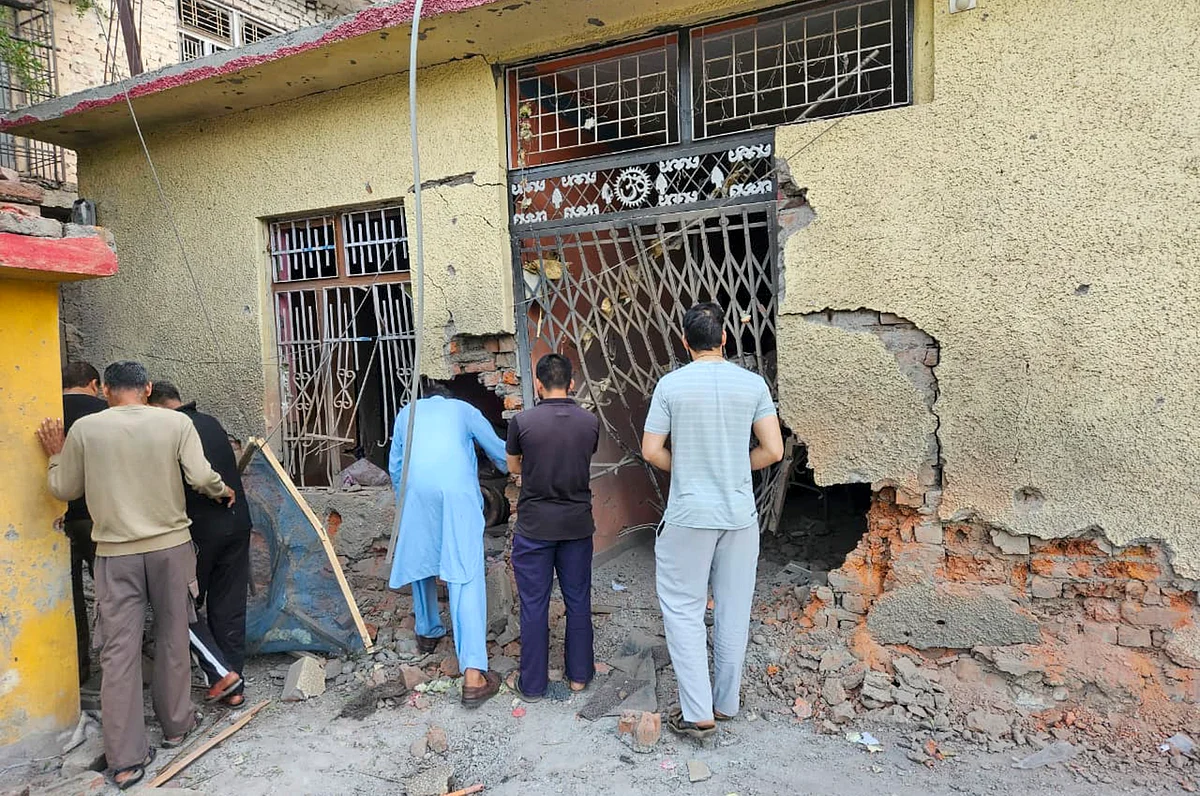J&K residents up all night tracking ‘Operation Sindoor’ developments
Skirmishes has been on along the LoC and international border for the past 11 consecutive nights in violation of the ceasefire

Soon after the Indian Armed Forces launched Operation Sindoor—a code name for its precision strike on terror camps across the Line of Control (LoC) late last night—heavy shelling at multiple locations along the LoC and the International Border (IB) in Jammu and Kashmir resulted in three civilian casualties and left at least five others injured. [ED: This report was filed in the early morning; however, an 11:33 a.m. PTI report put the figure at 9 killed, 41 injured, while at the time of publishing, chief minister Omar Abdullah had been reported by NDTV as stating the shelling from the Pakistan side was still continuing.]
According to official sources, overnight shelling was reported from several locations, including Krishna Ghati, Shahpur, and Mankote in Poonch, Laam, Manjakote, and Gambeer Brahmana in Rajouri, as well as the Karnah area in north Kashmir’s Kupwara district. These skirmishes erupted shortly after the Indian strikes.
Officials have confirmed three civilian deaths, including that of a woman, in the Poonch area during the overnight firing by Pakistani forces. Reports from Karnah in north Kashmir’s Kupwara district indicated that several houses were damaged and caught fire after being struck by heavy artillery from across the border.
“The situation was dire,” a source told National Herald. He added, “Throughout the night, both sides engaged in intense exchanges of gunfire and artillery shelling, creating a volatile and hazardous environment. Mohammad Adil, Saleem Hussain, and Ruby Kour were among the victims who lost their lives in the Pakistani fire.”
Pertinently, skirmishes have been occurring along the LoC and IB for the past 11 consecutive nights in violation of the ceasefire.
These skirmishes, in various areas including those opposite Kupwara, Baramulla, Poonch, Rajouri, Mendhar, Naushera, Sunderbani, and Akhnoor, started a couple of days after the horrific massacre at Pahalgam’s Baisaran meadow on 22 April, which claimed the lives of 26 tourists and a local pony ride operator and left 16 others injured.
The ceasefire violation has rekindled tensions that had been largely contained since the 2021 agreement.
Many residents across Jammu and Kashmir remained on edge throughout the night, with many following real-time updates on India’s “Operation Sindoor” and its potential ramifications.

“I was woken at midnight by my cousin, who lives in Delhi, informing me that India had attacked Pakistan. I immediately grabbed my phone to check the news myself. I then spent the entire night awake, surfing on my phone,” Aijaz Nabi, a resident in downtown Srinagar told National Herald.
In response to the escalating security situation, authorities have announced the closure of schools in vulnerable districts, including Poonch, Rajouri, Baramulla, Kupwara, and Gurez. The situation has also led to the suspension of civilian flight operations from Srinagar International Airport, as control of the airfield has been transferred to the Indian Air Force (IAF) for security reasons.
“Airfield is closed and today no civilian flights will be operated from Srinagar Airport,” Director Srinagar Airport Javed Anjum confirmed to a news gathering agency.
Meanwhile, a flying object, apparently a war plane, had reportedly crashed in South Kashmir's Wuyan village after airstrikes. The wreckage caused damage to a school wall, but it remained unclear whether the jet was Indian or Pakistani. Authorities have yet to provide an official statement regarding the origin of this aircraft.
Commenting on the grim reality faced by local civilians, Ali Mohammad Wani, a retired teacher from Srinagar, drew parallels with past Indo-Pakistani conflicts.
“It is a situation similar to what we experienced during the 1965 and 1971 Indo-Pak wars, as well as during the Kargil war in 1999. Each time India and Pakistan engage in war, or even a minor skirmish, the first to bear the brunt are the people of Jammu and Kashmir. In the case of the India-Pakistan rivalry, the people of J&K suffer first. As the saying goes, 'When elephants fight or make love, it is the grass that gets trampled.' In this case, the people of J&K are that grass—always the ones who suffer the most,” Wani remarked while talking to National Herald.
Follow us on: Facebook, Twitter, Google News, Instagram
Join our official telegram channel (@nationalherald) and stay updated with the latest headlines
